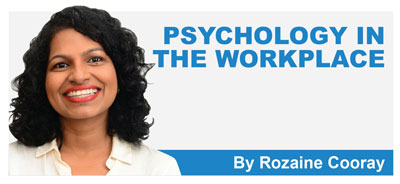Hell on the Highway: What the morning commute does to your day
View(s):Amali walks into office on a Monday morning disgruntled. The time reads 9.05 am, and she already feels exhausted. She takes a moment to register the slight pulse of a headache, the gnawing sense of irritation in her mind, and the feeling of fatigue and burden on her shoulders. As she sits down at her desk, skimming through the list of things to do today, she ponders why she feels so tired before the week has even started.
The reason? Commuting! How long do you spend on the road every morning to work? In the US, the average one-way commute is 26 minutes.
When this statistic was brought up at work, people scoffed! What is 26 minutes? Unfortunately, some of us who work around Colombo spend an average of 45 to 60 minutes (or even more) on the road getting to work – a trend which is common in South Asia.
This long commute has become almost a part and parcel of our lives, something we have taken for granted. Subsequently, we are also taking for granted the adverse effects this commute can have on our mental health and wellbeing. The most obvious result of the long and frustrating commute is stress. While stress itself is a debilitating experience, it creates a ripple by impacting our style of work. The early morning experience of a high-traffic commute will put into motion a series of ripples in different dimensions of our life.
Take for instance, the psychological dimension – a bad start to the morning is likely to increase the levels of anxiety, feeling of helplessness, and frustration during the subsequent work hours. It is linked to poor emotional regulation, making us more irritable, and likely to respond to difficult situations with frustration. This, in turn, can directly impact social relationships – as an irritable person with difficulty regulating emotions is highly likely to engage in conflict and arguments.
The impact also shakes our cognitive dimension – the feeling of being unable to control things, particularly when a well planned commute to office takes much longer than the Google Maps estimate, primes a sense of helplessness in individuals, and can lead us to become complacent during the day.
Physically, spikes in high blood pressure are almost the norm of commutes, and unconsciously, the activity in our autonomic nervous systems will increase too leading to a slight spike in body temperature. As a result, people can actually complain of ‘feeling ill’, after a long traffic-jammed journey, since the combination of high blood pressure and a slight increase in body temperature can be interpreted by the body as being sick.
The combination of the above debilitating effects results in employees who are not performing at their peak, are unhappy, and disgruntled. The long list of adverse effects that was detailed above is the norm, unfortunately, for most of us who have offices in busy cities. So in the interests of keeping our work days productive in the new year, what can we do? Afterall, the commute is unavoidable to most of us, and switching jobs simply for the purpose of a quicker and easier journey to work is an extreme move.
Studies have identified a number of simple things that individuals can do during the early-morning commute, to better handle the stress and subsequent psychological, physiological, and cognitive effects that can be experienced. One of the first recommendations has been to make the morning commute a social experience. Carpooling has several distinct advantages, one of which is a lower expense for travel. The fundamental advantage, however, is that it makes the commute a social activity. The sense of community is linked to the release of oxytocin, a pleasure-related neurotransmitter in the brain, which can be a buffer to the adverse experiences of stress. In that light, it may be helpful to consider making carpooling more popular in Sri Lanka. While employees themselves can cluster themselves based on their address and travel together, this is also an initiative that organisations can coordinate as part of their efforts to improve employee wellbeing. Introducing more flexi-hours and work-from-home culture (if the nature of work permits) on a few days of the week can definitely ease the stress and increase effectiveness of disciplined employees.
Secondly, at a more individual level, engaging in something as simple as deep-breathing, or mindfulness activities can do wonders in managing stress. Many individuals recommend listening to ambient music on the drive to work, or listening to motivating podcasts and TED talks, to shift the emotional climate on your route to work. Here, we consciously shift the emotional tone of our mornings to something pleasant, calming, invigorating even, as opposed to allowing the frustration of the traffic jam to dominate our emotional metres.
The final tip to managing the chaos of the morning commute, is the simplest, yet the most difficult of them all – acceptance. Accepting that traffic, congestion, and how other people drive (I am particularly challenged in this area), is something beyond our control. It is creating enough space in our minds to allow for the days where the traffic runs so bad, that your carefully planned morning falls into chaos.
What about the commute back? The stress we bring back home to our families? Perhaps the times we spend on the social media or before the TV to rewind and relax, the time we could spend with our families or enjoying a hobby? The stress we carry to bed, only to wake up feeling more tired than last morning; the carry-over effect of the previous day’s garbage? The commute to and from is a serious problem and it’s something we all need to plan, organisations and individuals alike.
(The writer is a Business Psychologist, the Founder of Forté Consultancy and the author of ‘From Crisis to Character and a co-author of ‘Rockstars-Creating Stellar Performers in Organisations’. She can be contacted on rozaine@forte.lk)


